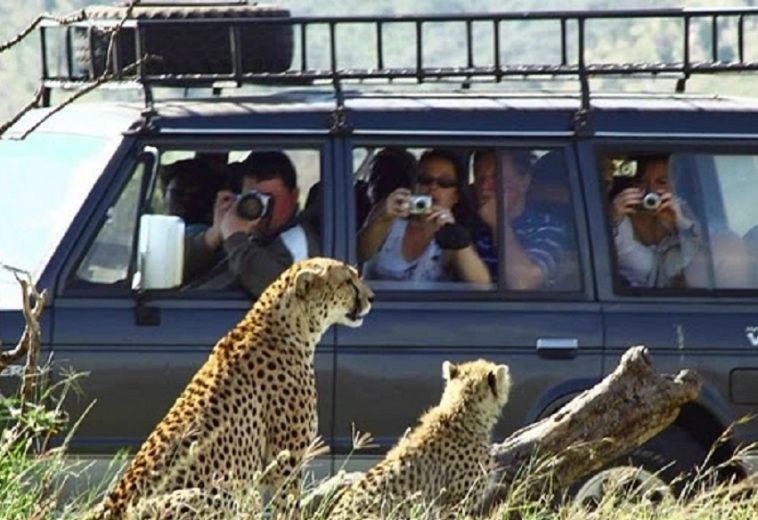“We are waging a suicidal war on nature.” — UN Secretary-General António Guterres
Each year on 6 November, the world observes the International Day for Preventing the Exploitation of the Environment in War and Armed Conflict, highlighting an often overlooked casualty of war: the environment. For Africa, a continent rich in biodiversity and natural resources, the environmental toll of conflict is devastating, affecting ecosystems, communities, and future generations. With the 2024 theme underscoring the urgent need to protect the environment from the ravages of war, this day calls for unified action to preserve Africa’s natural heritage.
Africa’s Ecosystems Under Threat
Africa’s diverse landscapes—from the rainforests of the Congo Basin to the sprawling savannas of East Africa—are home to a wealth of plant and animal life and support millions of people dependent on these ecosystems for their livelihoods. However, these resources are often central to conflicts. Studies reveal that over 40% of internal conflicts globally are linked to competition for natural resources, a figure that resonates strongly across Africa, where minerals, oil, and timber are both blessings and sources of contention.
The Democratic Republic of Congo (DRC), for instance, has faced decades of conflict driven by illegal mining of resources such as coltan, gold, and diamonds. The environmental consequences are severe: widespread deforestation, toxic chemical contamination of water sources, and extensive soil degradation. These practices not only strip the land of fertility but also pollute rivers and disrupt ecosystems, leaving surrounding communities to deal with the after-effects long after conflict ends. The United Nations Environment Programme (UNEP) estimates that 95% of environmental damage in conflict zones may take centuries to recover, underscoring the lasting harm of environmental exploitation in war.
Wildlife at Risk
Africa’s renowned wildlife has suffered extensively in conflict zones. In regions destabilised by armed groups, poaching has surged, with endangered species like elephants and rhinos targeted to finance wars. A 2023 report by the Wildlife Conservation Society found that elephant populations in conflict-prone areas have decreased by up to 60% over the past two decades. Such losses destabilise ecosystems, affecting biodiversity and damaging local economies that rely on ecotourism. Wildlife tourism is a vital source of income for many African communities, and its decline displaces workers and erodes economic stability.
Moreover, ongoing conflicts hinder conservation efforts, as wildlife rangers face life-threatening challenges. For example, in Virunga National Park in the DRC, armed groups frequently target rangers, reducing manpower dedicated to protecting endangered species. This leaves Africa’s precious biodiversity vulnerable to extinction, creating an urgent need for increased international support and intervention.
Agriculture and Food Security Under Siege
Agriculture, which forms the backbone of Africa’s economy and supports over 60% of its population, is particularly vulnerable in times of conflict. War damages farmland, irrigation systems, and essential agricultural infrastructure, forcing farmers to abandon their land and homes. In nations like South Sudan, armed conflicts disrupt crop production, resulting in severe food shortages. The 2023 Global Hunger Index (GHI) indicates that 282 million Africans face food insecurity, largely due to conflict-related environmental degradation.
The Sahel region, already grappling with climate issues like droughts and desertification, faces intensified challenges from ongoing conflicts. Croplands lie fallow, livestock populations dwindle, and food production declines sharply. The twin pressures of conflict and climate change make food security precarious, obstructing communities’ abilities to recover and rebuild.
The Climate Crisis: A Vicious Cycle of Conflict and Environmental Degradation
The environmental impacts of conflict extend beyond local ecosystems, contributing to the global climate crisis. War-driven deforestation, often tied to resource conflict, releases significant amounts of carbon dioxide, exacerbating climate change. Ironically, while Africa contributes less than 4% of global greenhouse gas emissions, it faces some of the harshest consequences of climate change.
Deforestation and land degradation are especially prevalent in conflict zones. A 2024 study on desertification in Libya reported that over half of previously fertile land in conflict-affected areas is now barren due to soil degradation and pollution. This creates a vicious cycle: conflict damages the environment, leading to food insecurity, which in turn fuels tensions and spurs new conflicts over scarce resources. As a result, Africa faces intertwined ecological and humanitarian crises that perpetuate poverty and instability.
A Call for Accountability and Global Action
The International Day for Preventing the Exploitation of the Environment in War and Armed Conflict calls for a global commitment to environmental protection, recognising that ecological harm in conflict zones has long-lasting repercussions. African countries are increasingly advocating for accountability from international actors and corporations contributing to environmental degradation in conflict areas. Regional bodies, such as the African Union (AU), are pushing for regulations that protect ecosystems as a foundation for peacebuilding.
Some African leaders argue that true peace is inseparable from environmental justice, urging the global community to support projects that restore war-impacted regions. Such initiatives include reforestation, soil rehabilitation, and bolstering local conservation efforts. International agencies and NGOs play a vital role in funding sustainable agriculture, clean water access, and environmental education, helping communities rebuild in post-conflict areas.
Africa’s Youth and Civil Society: Champions for Environmental Peace
Africa’s youth, who represent over 60% of the continent’s population, are emerging as passionate advocates for environmental protection. Youth-led movements and organisations across Africa are championing projects that restore degraded landscapes, push for climate action, and hold leaders accountable for environmental stewardship. Groups like Kenya’s “Green Recovery Movement” mobilise communities to plant trees, rehabilitate land, and promote sustainable farming, underscoring young Africans’ dedication to safeguarding their natural heritage.
Civil society organisations also play a critical role, raising awareness and pressing for policies that address the environmental impacts of conflict. By prioritising environmental restoration in post-conflict recovery, these groups promote a vision of peace that encompasses both human and ecological well-being.
A Unified African Call to Action
The African Leadership Organisation (ALO) has issued an urgent call to action, urging African governments, regional bodies, and the international community to commit to environmental protection as a cornerstone of sustainable peace. The ALO advocates for laws criminalising environmental exploitation during conflict, restoration mandates, and policies that prioritise ecological conservation in peacebuilding efforts.
As we observe this year’s International Day for Preventing the Exploitation of the Environment in War and Armed Conflict, let us remember that protecting Africa’s environment is not merely an environmental issue—it is a matter of human rights, security, and resilience. Africa’s future relies on safeguarding its ecosystems, and the global community must unite to ensure the continent’s natural beauty and resources endure for generations to come.


